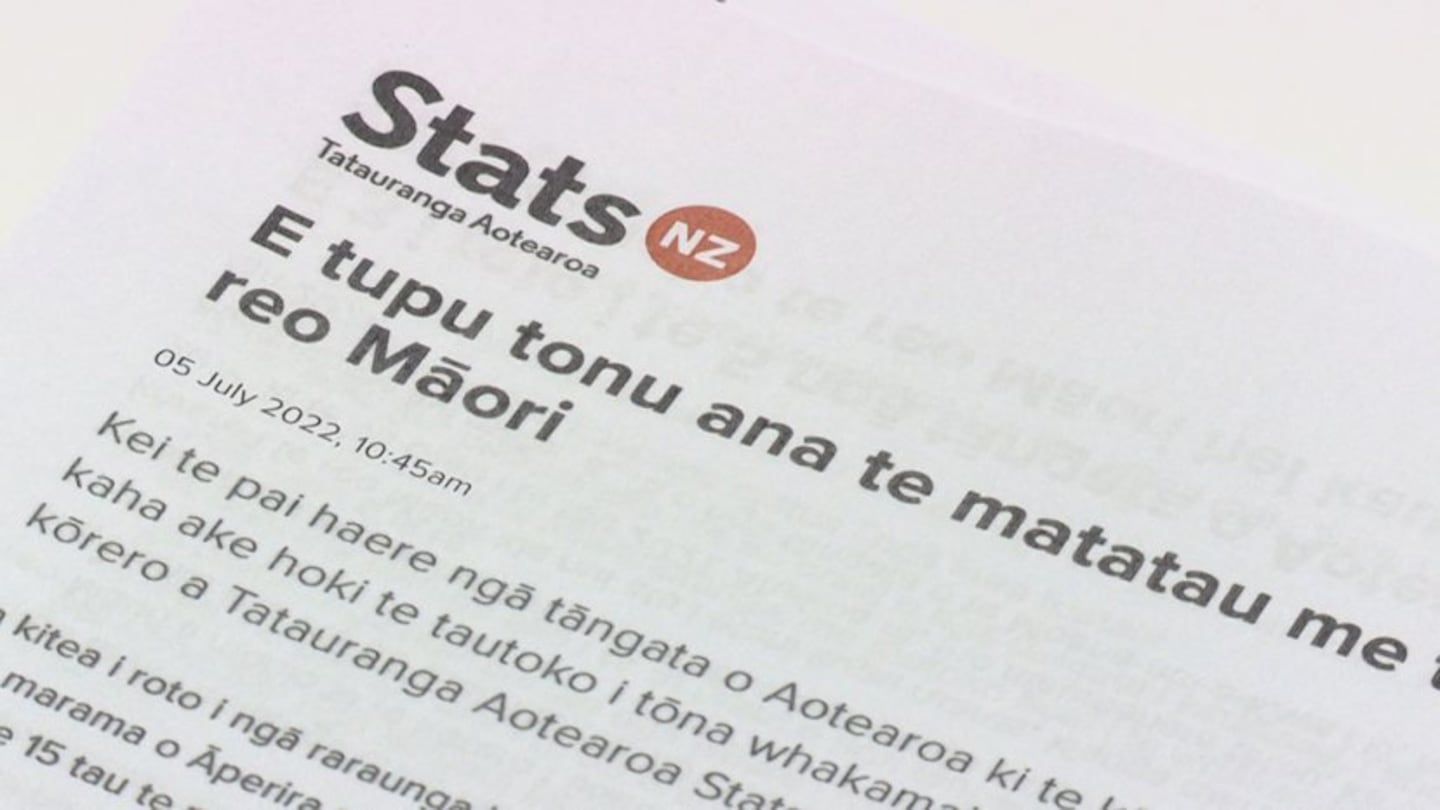Despite difficulties gathering data over the pandemic, Stats NZ has produced its latest wellbeing report that shows some good news; a significant leap in people proficient in te reo Māori across the country.
New data from the 2021 General Social Survey (GSS), collected between April and August 2021, showed the ability of New Zealanders aged 15 and over to speak te reo Māori in day-to-day conversation has improved.
Wellbeing principal analyst Dr Clare Bretherton was excited by the result.
“It's really in those younger age groups and up from 15 to 44 age groups, and that's where we are seeing it.
“It's also great to see because this is the generation that going to take te reo Māori into the future,” she said.
Data shows more people are learning te reo Māori.
Three in five New Zealanders think te reo Māori should be a core subject in primary schools. New data from the 2021 General Social Survey (GSS), collected between April and August 2021, showed the ability of New Zealanders (aged 15 and over) to speak te reo Māori in day-to-day conversation has improved.
Proficient speakers of te reo Māori are sitting at 30%, an increase of six percentage points from the last survey.
Stats NZ says statistically, it's a significant jump.
“It's quite a large increase, a much larger increase than we saw in 2016.”
Looking at the next survey, Stats NZ wants to gain a better picture of te reo Māori use in Aotearoa, so at the end of this year data collection will start for the next General Social Survey to see if things will get better, or worse.
“We are actually adding more reo questions to the next general social survey. So, while asking about the ability to speak te Reo Māori, we're also going to be asking about the use and how much people use te reo Māori,” she said
Mental health declining
While it's a cause for celebration for te reo Māori, the survey also found mental health and wellbeing figures for Māori were cause for concern. Furthermore, other groups who experienced poor mental health at higher rates were people with disabilities, single parents and LGBTQIA+ community.
“Some 31% of Māori had poor mental well-being. That's not a significant change from previous data, though it has gone up. But the change is not statistically significant,” Bretherton said.
Most New Zealanders remained satisfied with their lives in 2021, with a mean overall life satisfaction rating of 7.7 out of 10, the same as in 2018.
“The proportion of people with poor mental wellbeing equates to more than a quarter of the population,” work and wellbeing statistics senior manager Becky Collett said.
“We found that rates of poor mental wellbeing have risen significantly across many age groups.”



